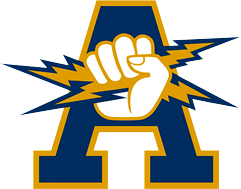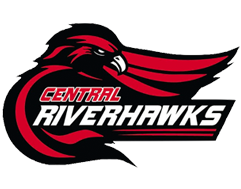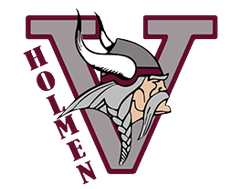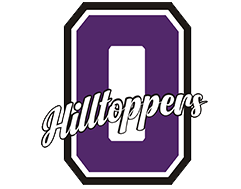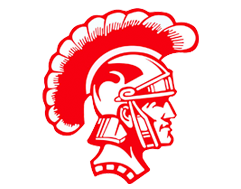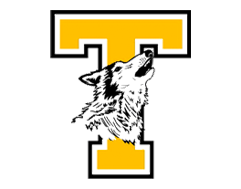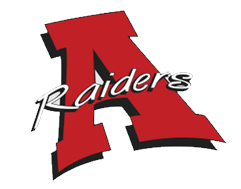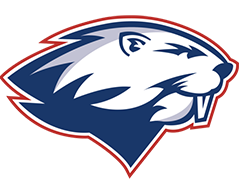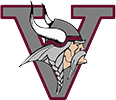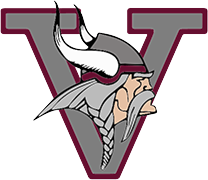College Athlete Resources
Information and resources for college-bound student athletes
Want to play college sports? Access comprehensive resources about eligibility, recruitment processes, and academic requirements for NCAA athletes.
Get More InformationParticipation in college athletics requires an eligibility account. Learn about the certification process and create your eligibility profile to start your collegiate athletic journey.
Check EligibilityThe NAIA offers additional collegiate sports opportunities outside of the NCAA. Explore NAIA schools, sports programs, and championship events for alternative athletic pathways.
Explore NAIARegister with the NAIA Eligibility Center to connect with NAIA coaches and receive information about scholarship opportunities at NAIA institutions.
Register NowIf you've committed to compete as a collegiate athlete, let us know so we can celebrate your achievement! Join Holmen's recognition of college-bound athletes.
Submit Your CommitmentAccess the official 2024-25 guidebook for college-bound athletes. This comprehensive resource covers all aspects of NCAA eligibility and recruitment.
Download GuideRecruiting Terms
A contact happens any time a college coach says more than hello during a face-to-face meeting with a college-bound student-athlete or his or her parents off the college's campus.
An evaluation happens when a college coach observes a student-athlete practicing or competing.
A verbal commitment happens when a college-bound student-athlete verbally agrees to play sports for a college before he or she signs or is eligible to sign a National Letter of Intent. The commitment is not binding on the student-athlete or the school and can be made at any time.
When a student-athlete officially commits to attend a Division I or II college, he or she signs a National Letter of Intent, agreeing to attend that school for one academic year. No NLI is required for Division III as no athletic financial aid is allowed.
Campus Visits
Any visit to a college campus by a college-bound student-athlete or his or her parents paid for by the college is an official visit. Visits paid for by student-athletes or their parents are considered unofficial visits.
During an official visit, the college can pay for transportation to and from the college for the student-athlete, lodging, and three meals per day for the student-athlete and his or her parents or guardians, as well as reasonable entertainment expenses including three tickets to a home sports event.
The only expenses a college-bound student-athlete may receive from a college during an unofficial visit are three tickets to a home sports event.
National Letter of Intent
A National Letter of Intent is signed by a college-bound student-athlete agreeing to attend an NCAA Division I or II college for one academic year. Participating colleges agree to provide financial aid for one academic year to the student-athlete as long as the student-athlete is admitted to the school and is eligible for financial aid under NCAA rules. Other forms of financial aid do not guarantee student-athletes financial aid.
The National Letter of Intent is voluntary and not required for a student-athlete to receive financial aid or participate in sports.
Signing a National Letter of Intent ends the recruiting process because participating schools are prohibited from recruiting student-athletes who have already signed letters with other participating schools.
A student-athlete who signs a National Letter of Intent but decides to attend another college may request a release from his or her contract with the school. If a student-athlete signs a National Letter of Intent with one school but attends a different school, he or she loses one full year of eligibility and must complete a full academic year at the new school before being eligible to compete.
Division III Celebratory Signing Form
Division III institutions are permitted to use a standard, NCAA-provided, non-binding celebratory signing form. A college-bound student-athlete is permitted to sign the celebratory signing form at any point, including high school signing events, after the student-athlete has been accepted to the institution. Institutions should keep in mind, however, that they are not permitted to publicize a student-athlete's commitment to the institution until the student-athlete has submitted a financial deposit (Bylaw 13.10.7)
Recruiting Calendars
NCAA member schools limit recruiting to certain periods during the year. Recruiting calendars promote the well-being of college-bound student-athletes and ensure fairness among schools by defining certain periods during the year in which recruiting may or may not occur in a particular sport.
During a contact period, a college coach may have face-to-face contact with college-bound student-athletes or their parents, watch student-athletes compete or visit their high schools and write or telephone student-athletes or their parents.
During an evaluation period, a college coach may watch college-bound student-athletes compete, visit their high schools and write or telephone student-athletes or their parents. However, a college coach may not have face-to-face contact with college-bound student-athletes or their parents off the college's campus during an evaluation period.
During a quiet period, a college coach may not have face-to-face contact with college-bound student-athletes or their parents and may not watch student-athletes compete or visit their high schools. Coaches may write or telephone college-bound student-athletes or their parents during this time.
During a dead period, a college coach may not have face-to-face contact with college-bound student-athletes or their parents and may not watch student-athletes compete or visit their high schools. Coaches may write and telephone student-athletes or their parents during a dead period.
REASONS TO CONSIDER NAIA SCHOOLS
Navigating the college search process can be overwhelming for anyone, but it can be especially challenging for student-athletes. In addition to academics and program offerings, student-athletes have to consider factors that will affect their athletic careers. Selecting the right school comes down to priorities. For someone aspiring to play sports professionally, an NCAA Division I school may be the logical choice. However, the remaining 98% of student-athletes may choose to prioritize the opportunity to play, program size, scholarships, and connection to the coach. For those student-athletes, choosing a National Association for Intercollegiate Athletics (NAIA) school is a great option for a fulfilling collegiate athletics experience.
Why choose the NAIA?
The NAIA is focused on the overall student-athlete experience, which includes academics and character building in addition to athletics. The NAIA offers its schools the flexibility to tailor their programs, providing the best possible student-athlete experience. Other factors to consider include:
Recruitment
In the NAIA, the rules for recruiting are very different from other associations. The flexibility of the NAIA recruitment process encourages coach-student mentoring. Being able to develop personal relationships is a hallmark of the NAIA and part of the philosophy behind NAIA recruiting rules. The association also hosts NAIA Showcase events to help coaches and prospective student-athletes find the best mutual fit. The NAIA is the only college athletics association that offers official recruiting events for prospective student-athletes. To determine your eligibility, visit playnaia.org.
Competition
The NAIA provides a high-caliber experience with 26 national championships, including the only competitive cheer and competitive dance championships hosted by a collegiate athletics association. In 2018, the NAIA became the first association to recognize women's wrestling as an invitational sport. With 17% of student-athletes competing, a higher percentage of NAIA student-athletes participate in post-season play compared to 14% in NCAA D-II and only 10% in NCAA D-III.
Champions of Character®
In addition to quality athletics, the NAIA emphasizes character development for coaches, staff, and student-athletes. The Champions of Character program focuses on teaching integrity, respect, responsibility, sportsmanship, and servant leadership, all of which help prepare student-athletes for lifelong success. The program also reaches high school and youth sports through outreach activities at every NAIA championship event through their Teaming Up for Character program.
At the end of the day, a student-athlete has to choose the school that best meets his or her personal needs. Considering NAIA schools significantly expands a student-athletes's options and increases the likelihood of finding a college that fits. And that's the goal of any college search—to find the best possible place and experience.
About the NAIA
The NAIA, headquartered in Kansas City, Missouri, is a governing body of small athletics programs dedicated to character-driven intercollegiate athletics. Since 1937, the NAIA has administered programs dedicated to championships in balance with the overall college educational experience. Each year more than 65,000 NAIA student-athletes have the opportunity to play college sports, earn over $600 million in scholarships, and compete for a chance to participate in 26 national championships.
